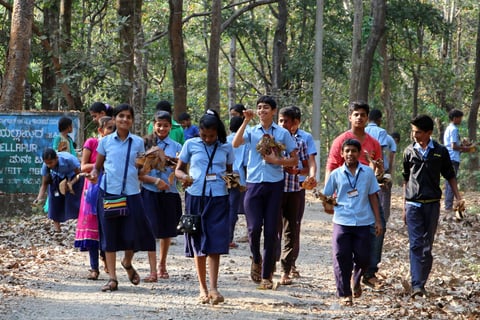Captivating the Next Generation: Fostering Future Stewards of Nature
In a time of unprecedented environmental challenges, cultivating future stewards of nature is more important than ever. Climate change, biodiversity loss, and ecosystem degradation highlight the need for environmental stewards who can protect our planet's natural resources. The urgency of the current environmental crisis demands a comprehensive approach to nurturing the next generation of environmental stewards.
Dr. Meghashyama Bhat
9/4/20244 min read
Nature Conservation: The Bedrock of Environmental Stewardship
Nature conservation, the cornerstone of environmental stewardship, requires a deep understanding of the intricate web of life within ecosystems. Future stewards must recognize the delicate balance between species and their habitats, realizing the far-reaching consequences of biodiversity loss. These stewards can play a vital role in protecting and restoring natural environments by acquiring the knowledge and skills to implement effective conservation strategies. This includes habitat restoration efforts, which aim to repair damaged ecosystems and create suitable living spaces for various species, and species protection initiatives, which focus on safeguarding endangered or threatened organisms from extinction. Through a comprehensive approach to nature conservation, future generations can inherit a planet characterized by thriving ecosystems and a rich tapestry of biodiversity.
The Role of Nature Education
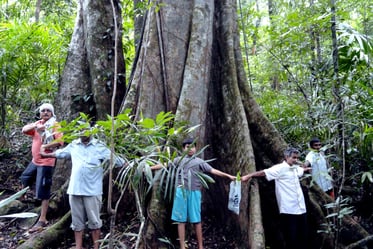

Nature education is a cornerstone in cultivating a generation of environmentally conscious individuals. By weaving environmental studies into the fabric of school curricula and encouraging experiential learning in outdoor settings, we can inspire a profound reverence for the natural world in young minds. Such education should go beyond theoretical knowledge, providing tangible, hands-on experiences that forge a personal connection between students and nature. Field trips, nature camps, and citizen science initiatives serve as catalysts for this immersive learning process. These experiences empower students to observe, understand, and appreciate the intricate ecosystems that surround them, fostering a sense of stewardship and responsibility for the planet.
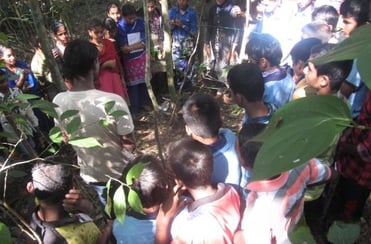

Environmental studies as a mainstream subject in education
Introducing environmental studies into the core curriculum of schools and colleges is crucial for creating a more environmentally conscious society. By integrating this subject into the core curricula, we can ensure that all students gain a fundamental understanding of ecological principles, sustainability, and the human impact on the environment. This approach would cover topics such as climate change, biodiversity, resource management, and sustainable development, tailored to be age-appropriate across different grade levels. This education not only provides essential knowledge but also fosters critical thinking skills as students learn to analyze complex environmental issues. Importantly, hands-on activities, field trips, and project-based learning can make the subject more engaging and relevant to students' daily lives. By making environmental studies a standard part of education, we can equip the next generation with the knowledge and skills to address pressing environmental challenges and make informed decisions for a sustainable future.


Raising Public Awareness: A Collective Responsibility
Educating the youth is a cornerstone of environmental stewardship, but it's equally vital to foster a broader public understanding of environmental challenges. Future generations must be equipped with the ability to articulate complex environmental concepts to diverse audiences, from young children to seasoned policymakers. This requires not only scientific knowledge but also effective communication skills. By engaging communities, businesses, and government officials in meaningful conversations about sustainability and conservation, these environmental stewards can bridge the gap between scientific data and public action. Through innovative social media campaigns, community-based events, and collaborative projects, they can inspire individuals and organizations to take a more active role in protecting our planet. Ultimately, raising public awareness is a collective responsibility that requires the concerted efforts of everyone, from scientists and educators to policymakers and ordinary citizens.
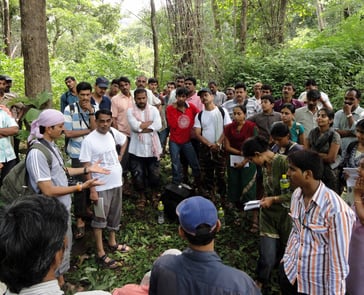

Environment Protection: From Knowledge to Action
In order to foster future environmental stewards and encourage meaningful action for environmental protection, it is necessary to take a comprehensive approach. This includes advocating for strong environmental policies that prioritize ecological preservation and human well-being. At the same time, fostering innovation is crucial for developing sustainable solutions for resource management, ensuring a balanced and equitable use of our planet's finite resources. Empowering local communities through conservation initiatives is essential to protect biodiversity and cultural heritage. Furthermore, promoting sustainable practices across all sectors, from agriculture to urban planning, is crucial to create a resilient and eco-friendly future. By integrating these multifaceted strategies, we can effectively move from knowledge to action and build a sustainable world for generations to come.
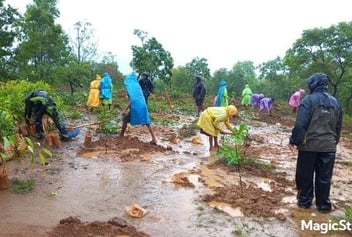

In conclusion, the path to a sustainable future relies heavily on our ability to inspire and empower the next generation of nature stewards. Through comprehensive nature education, increased public awareness, and a focus on practical environment protection strategies, we can cultivate a corps of dedicated individuals ready to take on the environmental challenges of tomorrow. As we face the uncertainties of climate change and ecological disruption, investing in these future guardians of nature is not just an option - it's an imperative for the survival and thriving of our planet.
